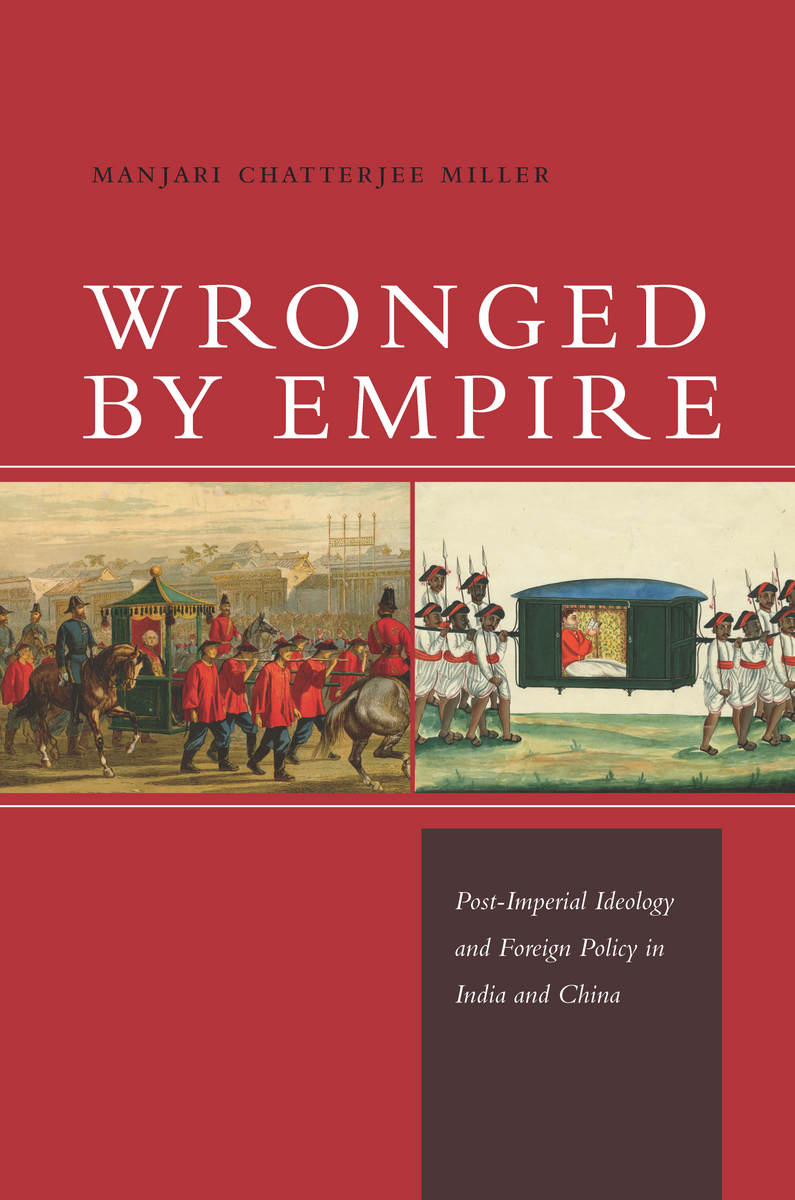Buy it here. Read an extract here.

Reviews
“Dr. Miller has written an important book with significant implications for the study of modern India, China, and broader Asian and international relations. The clearly presented and sophisticated arguments focus on colonialism and its legacy in India and China . . . Whether or not specialists are persuaded by Dr. Miller’s thorough arguments, it seems clear that they will be debating her interesting and insightful analysis for some time to come.”
—Robert Sutter, Pacific Affairs
“By treating [post-imperial ideology] as an independent variable influencing the foreign policies of each country, Miller achieves far more than she would have done using standard international-relations theories, which often fail to take into consideration post-imperial trauma, or which lump India and China together under the category of ’emerging powers’ without accounting for their specific historical experience. The result is a fascinating and sympathetic explanation of the political psychology of two of Western imperialism’s most significant victims.”
—Lanxin Xiang, Survival
“Manjari Chatterjee Miller’s erudite and timely book, Wronged by Empire, argues persuasively that trauma theory can be used to understand and explain developing nations’ foreign policy decision-making . . . Wronged by Empire is an important work that should be read widely, not only in the academic fields of international relations, political science, and Asian studies, but also by policymakers and businesspeople who seek to understand India and China, these two important rising powers in the world today.”
—May-Lee Chai, Asian Affairs: An American Review
“Manjari Miller’s Wronged by Empire provides a refreshing complement to the standard materialist readings of why China and India conduct themselves as they do: by making colonialism the pivot for explaining both their pervasive defensiveness and their conspicuous sense of entitlement, she reminds the international community that it cannot escape China and India’s past any more than they themselves can. A rich and rewarding book.”
—Ashley J. Tellis, Senior Associate, Carnegie Endowment for International Peace
“Manjari Chatterjee Miller’s Wronged by Empire is a pathbreaking study of the effects of the bitter history of imperial victimhood on the foreign policy of Asia’s two rising great powers. It is routine for experts on either India and China to assert that post-colonial nationalism matters in the foreign policies of these countries. But it is rare indeed to see that proposition systematically tested against the expectations of mainstream theories of international relations in a study of either country’s foreign policy, let alone both. Miller’s book is an important contribution to both international relations theory and Asian studies.”
—Thomas J. Christensen, William P. Boswell Professor of World Politics of Peace and War and Director, China and the World Program, Princeton University
“Focusing on the two giants, China and India, Wronged by Empire makes a convincing case on how the cognitive effects of colonialism have shaped a ‘post-imperial ideology’ that emphasizes victimhood and entitlement and is a core driver of the international behavior of these countries, especially with regard to two goals: sovereignty and status. The book is a creative and pioneering contribution to understanding how the behavior of rising powers flow from specific historical circumstances.”
—Devesh Kapur, Associate Professor of Political Science and Director of the Center for the Advanced Study of India, University of Pennsylvania
“Wronged by Empire is a fascinating, innovative, and insightful study of the political psychology of Sino-Indian relations and of the roles of those two countries in the world. Using trauma theory from the field of psychology, Miller postulates the experience of colonial subjugation by Western powers as an explanatory variable fueling a drive for territorial maximization and international status. This is an important contribution to our understanding of contemporary world politics and to the approach of two of Asia’s rising powers to one another and to the global order.”
—John W. Garver, Professor, the Sam Nunn School of International Affairs, Georgia Institute of Technology
“The engaging book present an ingenious argument. The foreign policies of India and China are motivated at root by a Post-Imperial Ideology that underpins their obvious concern to maintain their territorial sovereignty and improve their status in world politics . . . This is [] a provocative book and one that demands the attention of scholars of both Indian and Chinese foreign policy”
—Ian Hall, The Australian National University
